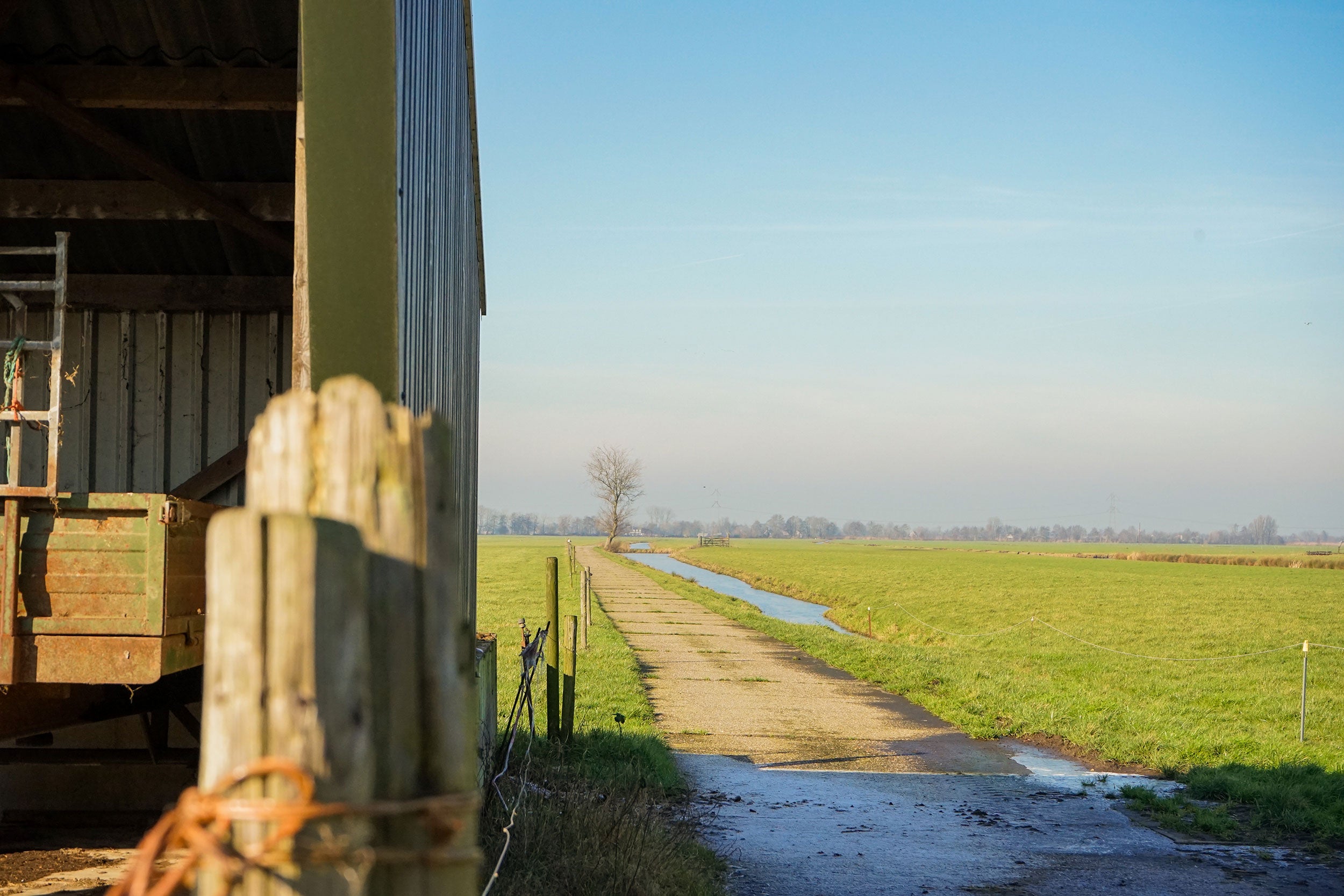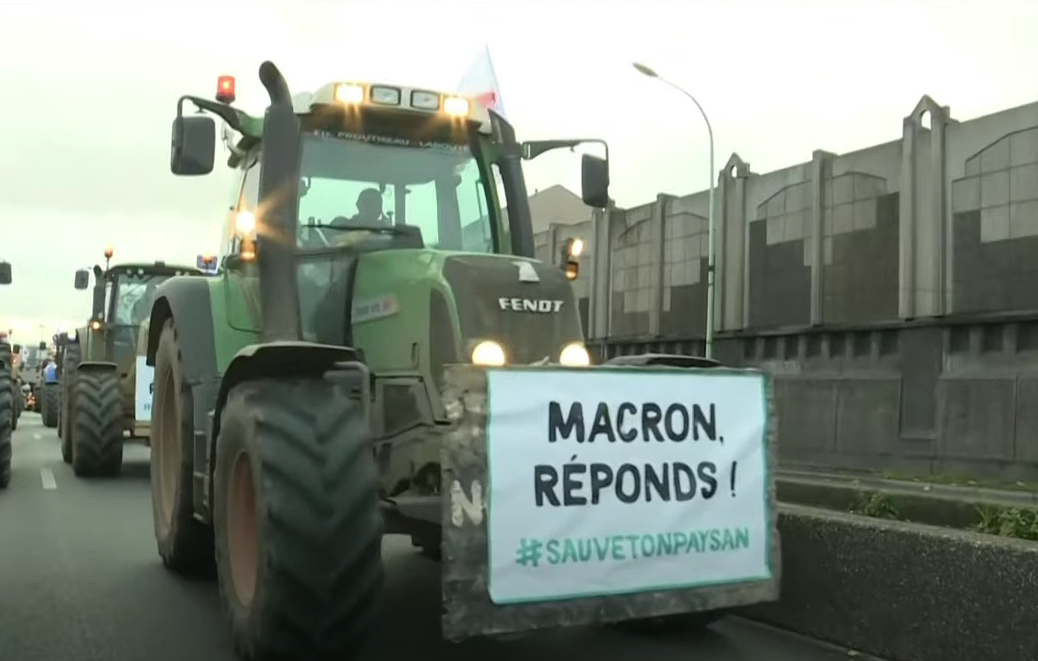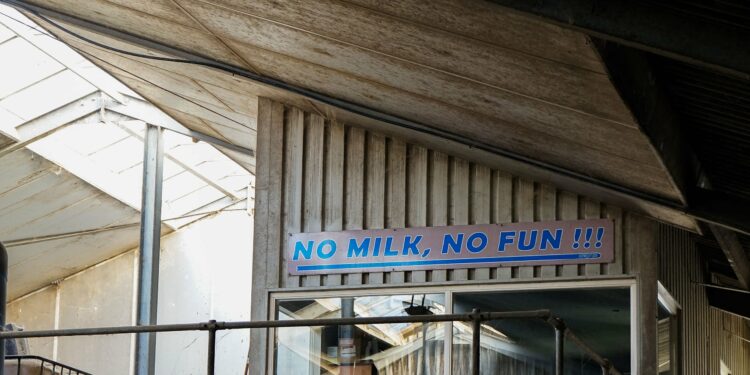When the toolbox wasn’t complete in 2024, farmers could not adapt to climate change, tough markets, or geopolitical powers that ravaged Ukrainian grain markets.
“We recognize that in certain regions, we’ve pushed too far, and the effects on our climate are very visible,” Picot said. She added we didn’t need to convince her members on the climate objectives because “climate is at the center of their everyday concerns, with higher frequency and intensity.”
North America remains closely linked to EU developments, as European consumer preferences — favoring organic products over genetically engineered crops, for example — shape global demand and influence U.S. producers.
Farmers’ perspective
Farmers have long made their voices heard in this conversation, with many leading voluntary conservation and sustainability efforts.
For Dutch farmer Judith de Vor, her travels around the world have shown her that the key question isn’t just whether these policy changes are right for today, but whether the necessary discussions are happening now to shape the future.
“Here’s our mindset. They come with some regulations, which are probably not what we want, but if we know what we have to do, then we can work on it,” she said. “Then 10 years from now in 2035, some people choose to stop farming, but others say, ‘OK, we will go on and implement that kind of rule on our farm.’ ”
She is one of many farmers advocating for their sector, knowing today’s policies shape the future. “We [the agrifood sector] are only thinking about what is not possible instead of what our vision is,” she said.
De Vor is a dairy farmer, with her husband, Rick, outside of Rotterdam, Netherlands. Her 120-cow dairy farm operation is an average size in the Netherlands, adapting her farm to the eco-schemes of her milk processor, which she says gives her sellers choice and adequate pricing.
 Judith de Vor’s farm in the Netherlands sits on 40 hectares of land, five of which is made of canals. (Image by Jake Zajkowski)
Judith de Vor’s farm in the Netherlands sits on 40 hectares of land, five of which is made of canals. (Image by Jake Zajkowski)
She also serves as a global communicator, Global Farming Network member, and former Nuffield Scholar, traveling to share how her farm stays ahead of sustainability and policy changes.
According to de Vor, resource limits, land competition, climate change, and profitability are farmers’ top challenges, with many CAP proposals set to address them.
Europe national agriculture policy is split between two “pillars,” direct farm payments and rural development, like the U.S. farm bill that is split between nutrition and farm assistance.
Farms such as de Vor’s in the European Union receive direct payments to support their agricultural production. Under the CAP, anyone who farms agricultural land receives payments based on hectares farmed — a policy instrument that some lawmakers have considered attaching more environmental provisions to in order to access those funds.
Used as a safety net, direct payments to farmers serve as the EU’s policy mechanism to make farming more profitable and guarantee food security by delivering public goods not typically covered by markets, provided those farmers meet basic land management provisions.
Some may equate this to the subsidies that farmers receive in the U.S., however, de Vor says that does not accurately describe how she sees support on her farm.
“I never use the word ‘subsidy,’ because what we do is produce a common good. We all need it — whether it’s taking care of nature or the landscape,” she said.
The CAP applies to almost 7 million European farmers, providing direct farm payments based on land usage rather than income. It makes up 72 percent of the seven-year legislation that is currently funded until 2027 but has drawn criticism for disproportionately benefiting large agribusinesses and will be at the center of the program’s negotiations in the coming two years.
An EU Commission report indicates that 80 percent of CAP funding goes to just 20 percent of farms, highlighting concerns about how the program’s payments are distributed.
Perhaps the mindset of the European farmer — one who farms on an average of 39 acres, where consumers are deeply connected to local, organic food purchasing, and where food prices are significantly lower than the U.S. — is centered around the common good.
A mindset that extends to how they improve their farming practices amid a climate crisis.
Why farmers took to the streets, protesting
When farmers took to the streets across Europe in spring 2024, their goal wasn’t just to voice their grievances to the government — it was to make them impossible to ignore. Blockading major cities brings national attention.
As one agrifood journalist covering Parliament put it, “You’ll never miss a farmer protest in Brussels or France.” Protesting in Europe is a fixture of national life, for farmers.
Ana Rocha, director of the EU’s Agri & Forestry Policies for the European Landowners Association and a longtime parliament policy advisor, said that this policy environment requires that “you should have a long breath, and then you will survive.”
Every agriculture issue or protest, depending on who you were talking to, “had a completely different story,” she said.
In 2024, in Germany, a fertilizer tax increased prices and diesel subsidy was cut, sparking outrage. France saw declining farm incomes and political upheaval during a snap election. Meanwhile in Poland, cheap Ukrainian imports dropped the price of grain. The EU itself continues to reshape policy, fueling more frustration over the sustainable use of pesticide regulations.
When a country’s farm groups protest, it is often a coordinated effort, through the farm organization’s advocacy team. However, what was seen in spring 2024 was new, unforeseen, and massive in scale.
“I think it was the first time that it was social media led, which was leading to panic with policy makers, enforcement, neighbors,” Rocha said.
Unlike in the U.S., where major economic agricultural policy is largely dictated at the federal level, European farmers must navigate both EU-wide regulations and national policies.
 Image by Al Jazeera English
Image by Al Jazeera English
Protesters in France, well known vocal activists, have cultural significance behind the act.
“The French love a good demonstration,” multiple Brussels policy makers said in conversation.
Recent protests have been divided by national stance. Demonstrations in November 2024 and January 2025 opposed the Mercosur trade deal, which some EU producers fear will undercut prices and the U.S. uncertain shift the demand of U.S. products.
Germany and Spain support the deal, while France, Belgium, and Poland oppose it. Later this year, EU council members will hold reconciliation talks to negotiate possible changes.
Farmer protests in Europe can sometimes resemble a football tailgate or pre-game gathering. When not violent, people gather early with friends and neighbors, showing up regardless of the cause and always having something to complain about.
But unlike football, the season never ends, and farmers in Europe feel like they have been losing for too long.
This is the first in a four-part series of on-the-ground reporting from Europe, exploring the demands of consumers, the actions of policymakers, and the perspectives of agricultural producers working within the diverse, parliamentary framework of the European Union.
Jake Zajkowski is a freelance agriculture journalist covering farm policy, global food systems and the rural Midwest. Raised on vegetable farms in northern Ohio, he now studies at Cornell University.
Sponsored Content on AGDaily
Source link : http://www.bing.com/news/apiclick.aspx?ref=FexRss&aid=&tid=67b52c7e936a47f096bfdcb69a92608d&url=https%3A%2F%2Fwww.agdaily.com%2Finsights%2Fthe-european-unions-farming-dilemma-sustainability-regulation-and-survival%2F&c=16603365196640825040&mkt=de-de
Author :
Publish date : 2025-02-18 10:10:00
Copyright for syndicated content belongs to the linked Source.


